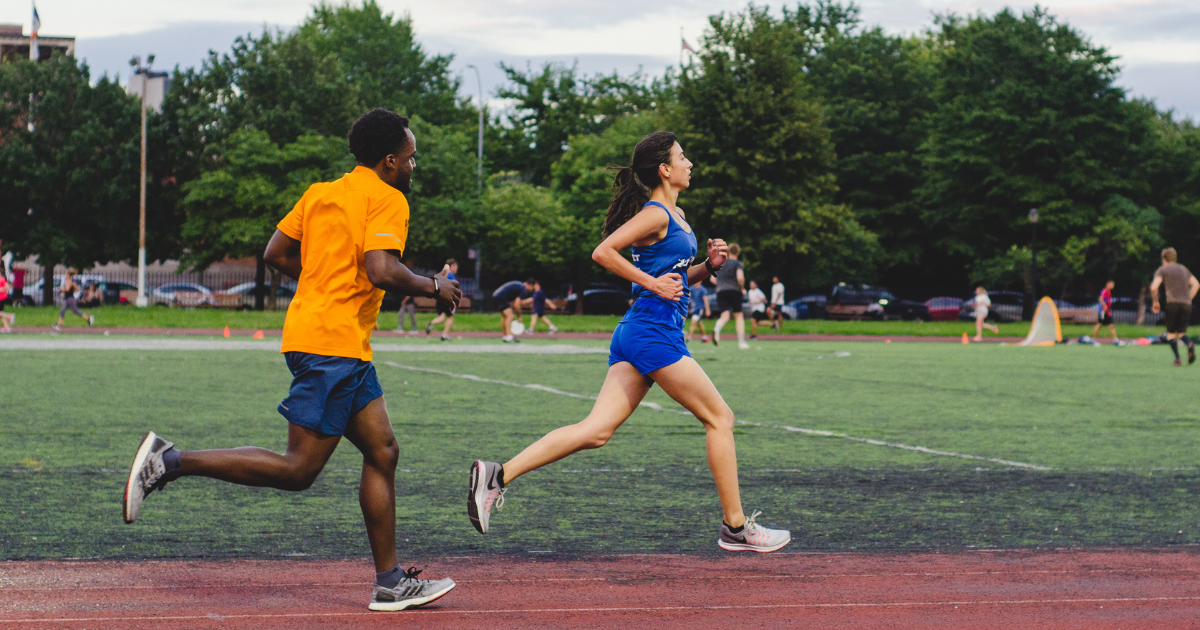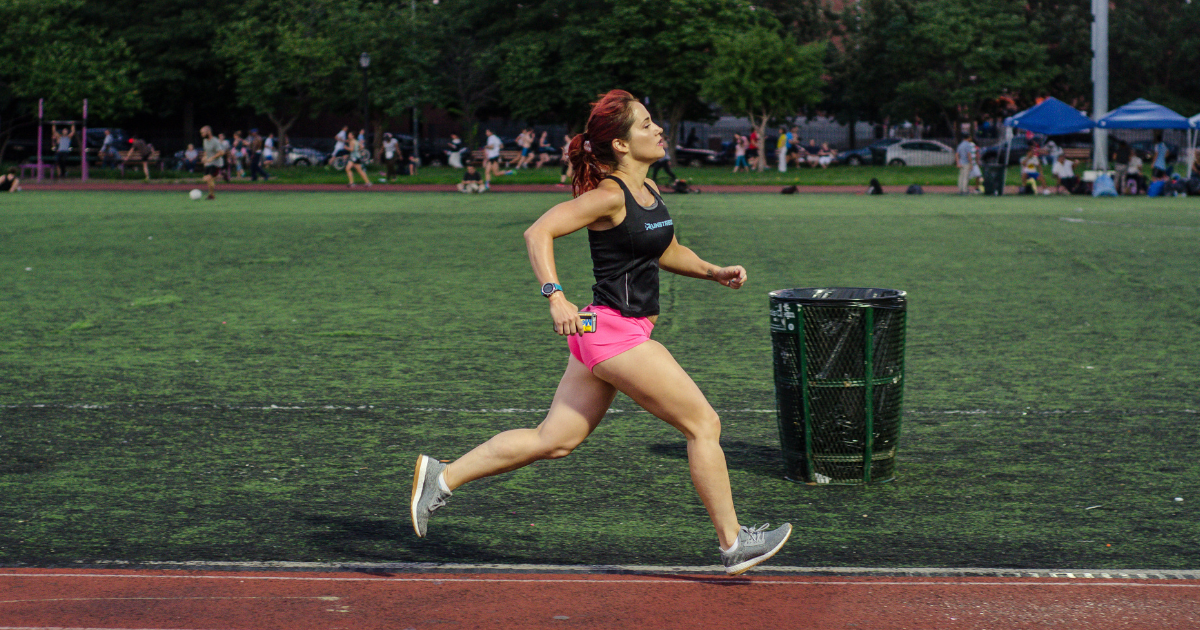Should You Have Caffeine Before Running? An Expert Weighs In
Photo by Marques Jackson Photography.
By Erin Kelly, Doctor of Physical Therapy, Running Coach
Is caffeine before running helpful or harmful? The benefits of caffeine go far beyond helping us wake up in the morning, and giving us a pick-me-up in the middle of a long day. Caffeine, known for its ability to increase alertness, energy levels, and the ability to concentrate, can also be used as an exercise supplement. In fact, caffeine is often a main ingredient in various chews and GUs used by endurance athletes during long bike rides, runs, and workouts. Some runners also regularly drink coffee before running for an energy boost.
Related Post: When and What to Eat Before Running
Is Caffeine Before Running Helpful?
While it can be tempting to enjoy a big cup of coffee before heading out for your morning run, research shows that consuming caffeine before running may not be the best way to benefit from the stimulant. Dr. Louise Burke, PhD, a professional fellow at the Australian Catholic University, Wu Tsai Human Performance Alliance collaborator through the Female Athlete Program, and distinguished sports dietician, says studies show that caffeine may be best consumed during a run or endurance activity to improve athletic performance.
We talked to Dr. Burke to learn more about how endurance athletes, especially runners, can use caffeine to gain an edge in their training. Dr. Burke sits down to answer our questions about using caffeine’s performance-enhancing abilities for runners and other endurance athletes:
Related Post: Nutrition for Runners: Tips from a Dietitian
1. How Does Caffeine Affect Running Performance?
The main benefit caffeine provides for runners is that it reduces their perception of fatigue, Dr. Burke explains. By limiting the effects of fatigue—like a decrease in speed or a lapse in concentration that typically manifest in the second half of a long run—caffeine essentially “rescues” the athlete from these performance dips.
2. Who Can Benefit From Taking Caffeine During a Workout?
Anyone can use caffeine to boost their athletic performance in just about any sport, but caffeine is less likely to help a single power or strength effort and more likely to be beneficial during longer workouts and endurance efforts like long runs. Its benefits are most obvious during endurance events, team and racket sports, and prolonged high-intensity sports like rowing, running, and swimming.
“Studies show a typical benefit of about one to three percent,” Dr. Burke says, “which may be just a few seconds during shorter races, but can amount to two to five minutes over a three-hour marathon.”
While many think caffeine benefits for athletes are limited to competitions or endurance races like marathons, Dr. Burke reminds us that caffeine can also be used regularly to help athletes train harder or have better quality workouts throughout their training season. This can be especially helpful during early morning sessions or longer training runs, when fatigue levels may be higher.
3. Should I Take Caffeine Before Running, During A Run, or After A Workout?
Dr. Burke recommends that instead of taking a large dose of caffeine before running, you should use caffeine during your run. Dr. Burke recommends consuming a small amount of caffeine as you begin to feel fatigued. This can be in the form of a caffeinated chew, gum, gel, pill, sports drink, or even coffee — as long as you have a way to bring it with you on the go.
Of course, for shorter events, like a 5k race, it still makes sense to have some caffeine before running to give your body time for it to take effect.
4. How Much Caffeine Should You Consume To Improve A Run?
Small doses of caffeine, or about 3 milligrams of caffeine per kilogram of body weight, tend to work best, Dr. Burke says. For a 150-pound athlete, that amount of caffeine is roughly equivalent to the 200 milligrams often found in a caffeine supplement pill.
While Dr. Burke reports many runners have found success with this recommendation, she reminds us that it’s important to experiment and find the smallest optimal dose for you.
“Although some athletes have succumbed to the principle of ‘more is better’ with many performance practices, the best way to benefit from caffeine is to use it deliberately rather than haphazardly, and to find the smallest effective dose (that will work for you),” Dr. Burke says.
5. Is There An Optimal Form of Caffeine To Consume (Coffee vs. Gum vs. Gel) During a Run?
For the most part, “caffeine is caffeine,” Dr. Burke says. However, certain sources of caffeine are much easier to carry on the run compared to others, and some forms of caffeine including energy gels and chews also have the benefit of including carbs and electrolytes. Gels and chews offer the benefit of pre-packaged nutrition labels, so you know exactly how much caffeine you’re consuming. The amount of caffeine in coffee is more difficult to determine, and can change from one cup to the next.
An underrated form of caffeine that many runners may not think about is caffeinated gum.
“When chewing caffeinated gum, the caffeine stays in the mouth and can be absorbed across the cheek cells,” Dr. Burke says. “This allows the caffeine dose to enter the blood more quickly than if it is swallowed and absorbed from the gut. This can be useful in events where the athlete wants to time their dose for a specific and rapid effect—for example, if the match goes into overtime, or the cyclist is about to mount an attack and ride away from the pack.”
For runners, this could mean timing their caffeine intake before ‘hitting the wall’ around mile 18 or mile 20 of a marathon, or before the last two sets of 800-meter repeats.
6. When Is the Best Time to Have Caffeine During A Run?
The best time to take in caffeine during a run is the moment you start to feel fatigued, or the moment you predict you’ll start to feel fatigued, Dr. Burke says. Studies show that small doses of caffeine consumption can help mask feelings of tiredness, giving you a mental boost that can translate to muscle power. As noted above, different forms of caffeine will be metabolized at varying rates, so it’s important to try caffeine during your training runs to find the best dose and form for you.
“Trialing different practices can help an athlete fine-tune the plan that works best,” Dr. Burke says.
7. What Are The Risks of Supplementing Your Run With Caffeine?
The main risk associated with using caffeine to boost running performance is interrupting your sleep patterns, Dr. Burke says. This can happen due to poor timing of caffeine intake, or excessive consumption, leading to a poor sleep cycle. So if you do plan to use caffeine to boost your runs, it’s probably best to run in the mornings.
Research also shows that too much caffeine--no matter the circumstances--can lead to serious side effects, including agitation, headaches, and stomach issues. And in extreme doses, the effects of caffeine can even be deadly. That’s why it’s important to be aware of the caffeine content in espresso, coffee, drinks, foods, and supplements you consume, especially if you’re taking in additional caffeine during your run. It can be easy to accidentally take in more caffeine than intended, Dr. Burke warns.
Tips for Running and Caffeine
Try these tips to boost your running performance with caffeine without overdoing your dosage:
Start slowly with small, measured amounts of caffeine if you want to try caffeine to boost performance during your runs and races,
Try an energy gu or chew with caffeine on your run for a controlled dosage. Energy drinks and pre-workout are usually less helpful for endurance athletes and often have many unnecessary additives. Coffee and caffeinated beverages can be harder to determine how much caffeine is in the drink.
Reduce your caffeine intake if you feel jittery or anxious.
Make sure you have enough hydration before, during, and after your run as caffeine has a diuretic effect, which in large doses can lead to dehydration. The amount of caffeine in running energy chews and gels should not be enough to cause dehydration but make sure you do not take more than the recommended amount.
If you have anxiety or sleep problems, caffeine may have negative side effects such as sleeplessness, trouble falling asleep, and insomnia. Consult your doctor about caffeine if you have sleep issues or anxiety.
Have you tried caffeine before running or during your runs? Comment below or tag @Runstreet on Instagram to share your workouts and get cheered on. For more training tips and workout plans, sign up for our Wellness Wednesday newsletter. Happy running to you!
Related Posts: 3 Track Workouts to Improve Your Race Times, Half Marathon Training Plan for Beginning Runners
Erin Kelly is a writer, run coach and doctor of physical therapy. She's passionate about crafting compelling stories and helping individuals reach their athletic (and personal!) goals. You can follow her on Instagram at @runfromyourpr0blems.




